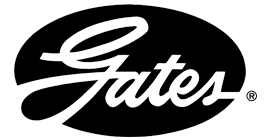
AUTONET TV
Archive for October 2019Follow the Bouncing Vehicle (Bad Struts and Shocks)Posted October 27, 2019 11:45 AMIf you hit a bump in the road and your vehicle just keeps bouncing up and down for a lot longer time than it used to, you may have bad struts and shocks. They're the things that help to keep your vehicle's wheels and tires planted to the road surface. But they don't last forever. With care and depending on where and how you drive, shocks and struts should be replaced at intervals ranging from 50,000 miles/80,000 km to 100,000 miles/160,000 km. If you drive on bumpy roads with a lot of potholes, that interval will likely be shorter. Rough surfaces can take their toll. But how do you know if your shocks and struts are doing their job properly? The best way is to have your vehicle checked by a technician. He or she can inspect the shock absorbers and struts for leaks, corrosion and damage. Mounts and bushings can also go bad and they should be evaluated as well. A thorough examination by a technician will also include looking at other suspension parts. Some may contribute to making your vehicle behave the same way if they're broken, corroded, worn or bent. If you need new shocks and struts, your service advisor will make sure that you get those that meet manufacturer's specifications. That's important because they want to make sure you're getting the handling and performance engineers designed your vehicle to have. TJ's Auto Center Inc. Your Biggest Fan (Radiator Fan Problems)Posted October 20, 2019 10:59 AMYour vehicle's engine makes a lot of heat when it's powering you down the road, so it needs a way to get rid of that energy. That's why your vehicle has a cooling system, complete with a radiator and one or two radiator fans, also called cooling fans. Those fans make sure air keeps moving across the radiator so that the heat stored in the coolant can be dissipated outside when the vehicle is stopped or not traveling fast. Radiator fans can develop problems and can stop working properly or stop working altogether. Some signs to look for? If you're driving slowly and idling and you see your temperature gauge moving toward the red or hot zone, that could spell trouble. Another thing you may notice when a radiator fan is failing is that there may be a loud noise coming from the engine compartment. There are two types of radiator fans. One is mechanically connected to the engine and uses the engine's rotational energy to turn it. The other is an electric fan and is the type used in most newer vehicles. In the electrical type, one of the components, such as a relay or fuse, may fail, causing the fan to stop turning. In the mechanical type, since it's driven by a pulley/belt mechanism, one of those components may break or stop working properly. A clutch can wear out or a belt may slip or break. When your cooling fan isn't working properly, it may cause your engine to overheat which could lead to expensive damage. That's why it's important to make sure you visit your service facility if you notice any of these symptoms. A technician is trained to diagnose the problem and make sure your radiator fan is doing its job. When it comes to your vehicle, your radiator fan really is your biggest fan. TJ's Auto Center Inc. Wash Me, Wash Me Right (How to Wash a Vehicle)Posted October 13, 2019 10:47 AMMost would agree they'd rather drive around in a clean, shiny vehicle than one coated with a layer of dirt. When warmer weather comes around, some of us are bound and determined to wash our own vehicles. And to protect the paint and its luster, there are a few things to keep in mind when you get out the bucket and soap.
The next time you have your vehicle in for maintenance, you might ask your service advisor for recommendations on vehicle washing accessories. They are usually up on the brands that produce the best results. You may not be a detailing pro, but there's no reason your vehicle can't look like you are. TJ's Auto Center Inc. The Turn Signal Mystery (Turn Signal Problems)Posted October 6, 2019 8:23 AMSome problems are easy to diagnose on a vehicle; others aren't. Figuring out what's wrong with a malfunctioning turn signal sometimes fits into both categories. By the way, if your tempted to just leave your broken blinker broken, remember you can get a ticket for not using them, not to mention you are missing a great chance to communicate your intentions to other drivers on the road. There can be lots of signals that your signals are on the blink. Does only the driver's side signal not work or the passenger's side? Do your hazard signals work? Do the lights illuminate but not flash? Can you see the indicators on the dash blinking? Do your turn signals turn off after you've finished your turn or do they stay on? These are all great clues for the technician. Here's one common symptom to take note of. Your signal all of a sudden starts blinking much more quickly than it used to. It could be a simple as a burned out bulb. But there are many different parts that go into the turn signal system. There are fuses that blow, switches that can fail, flasher modules that go bad and light bulb sockets that can simply get corroded or dirty. When that happens, it's possible there's no contact between the bulb and the socket. So it's understandable how tracking down the source of the problem can involve some detective work. Your service facility has equipment that can nail down the cause of your problems. They may also consult the repair manual. One thing to be aware of: if your vehicle has airbags, they may have to be disabled so they don't accidentally go off. You can make sure your turn signals are working correctly by having them checked by a trained technician. Other drivers will thank you for showing them the courtesy of signaling your intentions. It's a courteous and considerate thing to do, not to mention it makes the road a safer place. TJ's Auto Center Inc. Not-So-Common Sense (Sensor Failures)Posted October 3, 2019 3:42 AMSo your vehicle won't start. What's the first thing that comes to mind? Battery dead? Starter motor worn out? Out of gas? Well, those are all reasons that make sense. But your vehicle may be refusing to start because one of its computers is being warned that to do so might damage it. Here's how that works. You have lots of computers in your vehicle. They need to know the status of things so there are several sensors monitoring various things going on. These sensors send information to the computers that adjust the fuel and air mixture so you don't waste fuel. They know when things aren't quite right and prevent you from starting your engine if that's going to damage it. Other sensors make sure the coolant is the right temperature, check to see you are not polluting the air and make sure other electronic components are performing their tasks correctly. Here's an example of a sensor doing its job. Your engine needs oil to lubricate metal components so the friction doesn't damage them. Your engine has an oil pressure sensor that tells a computer called the Electronic Control Unit (ECU) if things are good to go or if there's something wrong, maybe the oil pressure is too low to keep things lubricated. If it is, it gives a signal for the vehicle not to start, protecting the engine. Of course, the sensors can go bad, too, with some of the same results. And so someone has to figure out if it's the sensor that's failed or if it really has detected a problem. That is the challenge for technicians with specialized equipment to decipher the signs. If a bad sensor is found, it may need to be replaced. Sometimes a thorough cleaning can do the trick. In either case, your service facility can track down the problem and get you back on the road. Makes sense, doesn't it? TJ's Auto Center Inc. | ||
SearchArchiveJune 2010 (71)July 2010 (4) August 2010 (4) September 2010 (4) October 2010 (4) November 2010 (4) December 2010 (4) January 2011 (4) February 2011 (4) March 2011 (4) April 2011 (5) May 2011 (5) June 2011 (4) July 2011 (4) August 2011 (5) September 2011 (4) October 2011 (4) November 2011 (5) December 2011 (4) January 2012 (5) February 2012 (2) March 2012 (5) April 2012 (4) May 2012 (5) June 2012 (4) July 2012 (5) August 2012 (4) September 2012 (4) November 2012 (1) December 2012 (2) March 2013 (1) April 2013 (3) May 2013 (2) October 2013 (5) November 2013 (2) January 2014 (2) February 2014 (3) March 2014 (1) July 2014 (4) August 2014 (7) September 2014 (4) October 2014 (5) November 2014 (4) December 2014 (5) January 2015 (4) February 2015 (4) March 2015 (4) April 2015 (4) May 2015 (3) June 2015 (5) July 2015 (2) September 2015 (2) October 2015 (4) November 2015 (5) December 2015 (2) February 2016 (2) March 2016 (4) April 2016 (4) May 2016 (5) June 2016 (4) July 2016 (5) August 2016 (4) September 2016 (4) October 2016 (5) November 2016 (4) December 2016 (4) January 2017 (5) February 2017 (4) March 2017 (4) April 2017 (3) May 2017 (5) June 2017 (4) July 2017 (5) August 2017 (4) September 2017 (2) October 2017 (5) November 2017 (4) December 2017 (3) January 2018 (5) February 2018 (4) March 2018 (4) April 2018 (4) May 2018 (4) June 2018 (4) July 2018 (5) August 2018 (4) September 2018 (5) October 2018 (3) March 2019 (4) May 2019 (2) June 2019 (5) July 2019 (2) August 2019 (1) September 2019 (4) October 2019 (5) November 2019 (4) December 2019 (5) January 2020 (5) February 2020 (4) March 2020 (5) April 2020 (1) May 2020 (2) July 2020 (1) August 2020 (5) September 2020 (4) October 2020 (4) November 2020 (5) December 2020 (4) January 2021 (6) February 2021 (4) March 2021 (4) April 2021 (4) May 2021 (5) June 2021 (4) July 2021 (4) August 2021 (5) September 2021 (3) October 2021 (5) November 2021 (4) December 2021 (4) January 2022 (6) February 2022 (4) March 2022 (4) April 2022 (4) May 2022 (5) June 2022 (4) July 2022 (5) September 2022 (4) October 2022 (5) November 2022 (4) December 2022 (4) January 2023 (5) February 2023 (4) March 2023 (4) April 2023 (5) May 2023 (4) June 2023 (4) July 2023 (5) August 2023 (4) September 2023 (3) October 2023 (2) January 2024 (1) February 2024 (4) April 2024 (1) May 2024 (3) June 2024 (5) July 2024 (4) August 2024 (4) September 2024 (5) October 2024 (4) November 2024 (4) December 2024 (4) | CategoriesWinter Prep (6)Tire Pressure Monitoring System (1)Shocks and Struts (4)Engine Air Filter (4)Warranty (1)Headlamps (6)Alignment (9)Check Engine Light (5)Maintenance (19)Parts (1)Differential Service (3)Cabin Air Filter (3)Steering (12)Fluids (8)Cooling System (10)Tires and Wheels (6)Tire Rotation and Balancing (4)Drive Train (5)Exhaust (11)Older Vehicles (2)Automotive News (4)Wheel Bearings (2)Fuel System (10)Service Intervals (3)Service Standards (5)Air Conditioning (10)Inspection (5)Battery (13)Brakes (17)Keys to a long lasting vehicle (2)Timing Belt (5)Fuel Economy (8)Transmission (5)Alternator (7)Auto Safety (5)Safety (2)What Customers Should Know (83)Fuel Saving Tip: Slow Down (2)Dashboard (1)Windshield Wipers (3)Oil Change (9)Customer Detective Work (1)Shocks & Struts (3)Safe Driving (1)Water Pump (2)Tires (12)Suspension (2)TPMS (3)Spark Plugs (2)Winter Tires (1)Fuel Pump (1)Brake Service (6)PCV Valve (1)Trip Inspection (2)Transfer Case Service (1)Fuel Filter (1) | |

OUR REVIEWS


Howard L.The business always does a great job and takes care of him. They are very polite.











